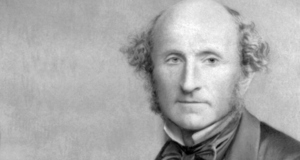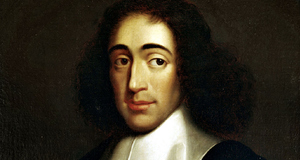Featured Article:Technology and Justice: The Philosophy of Authenticity and Democratic TheoryPart I: Historical Outline1: The Turn to Modern Thinking: Socrates, Plato, Aristotle, Augustine to Hobbes"Is not the creation of justice the institution of a natural order and government of one by another in the parts of the soul, and the creation of injustice the production of a state of things at variance with the natural order?"3 In the monumental Republic, Socrates is pointedly asked to define what justice is in and of itself. Despite more than 2000 years of speculation since that point, Western thinking has still reached no consensus on the issue. Indeed, faced with an endless plethora of competing systems of ethics, the answer to the layman must appear more ambiguous than ever before. Has not the question grown tiresome, a matter for speculation and abstraction only? As no less a figure than Hume says, while one may be at liberty to discuss the reality of justice as much as conceivable only a fool holds himself to no moral boundary whatsoever.4 What then is the purpose of attempting to establish yet another moral system atop those which already exist; treating morality, which even the most nihilistic person pragmatically, hopes to be existent, like a science which unravels its mysteries only with time and history? The answer is found precisely in the fact that we ask the question. Ironically, modern ethical theories must move beyond simple prudential justifications towards a dialogical, authenticating method predicated on internal reflection and communicative action. This is not to suggest that morality is revealed in time, but rather, that it is constituted and maintained not in pure abstraction, but concretely, through the engagement of persons with themselves. To do this requires an examination, in at least some detail, of the historical basis of moral systems. In so doing we lay the foundation for a more sustained critique of temporality and the condition of spirit in the modern era. Ethical thought in the West begins chiefly with Socrates, perhaps the purest philosopher in history. Socrates frequently denied that he possessed knowledge of a higher authority which granted him moral supremacy. His outlook was one of unrelenting skepticism and internality. The moral worth of his philosophy was not its substantive content, but rather methodological. Unlike later thinkers, such as Plato and Hegel, who radicalized the rational dialectical method to define or substantiate grand metaphysical and meta-ethical systems, Socrates' conception of reason was primarily negative and reductionist. The proper employment of reason was the deconstruction of truth claims through illustrating systemic contradictions and variance, rather than to aid in the growth and development of presumptive forms and modes of knowledge.If there was one positive contribution Socrates made to philosophy, it was appropriately a result of his deep concern over the ramifications of just such presumptive thinking. He saw the epistemological frameworks of cognition, frequently presumed correct purely on faith or tradition, as not merely the harmless fantasies of the misguided, but as having serious moral consequences. In perhaps the most archetypal Socratic dialogue, the Euthyphro, Socrates confronts the titular young man who is about to charge his father with murder: a crime which in Athens which bore the penalty of death. Euthyphro is religiously fanatic, and is concerned about the fate of his soul if he commits what he sees as an offense against the Gods by allowing his father to go unpunished. He brings up the example of Zeus overthrowing Chronos as exemplary of the behavior he is expected to emulate. Socrates however employs an ironic dialectic to illustrate to Euthyphro the absurdity of such pretentions, and in doing so forces him to reflect subjectively upon the irrational moral pathos he has thus far oriented his life around. This is exemplary of the attitude he would later iterate more systematically in the Apology. While Socrates advocated the employment of reason throughout the piece, reason is conceived very differently in the Socratic dialogues than it is even within the works of the mature Plato. Rather than abstracting away from the individual subject, with the aim of objectiving oneself with the aim of attaining ever higher levels of understanding, reason was directed internally, as a negative force in which abstraction was dissolved and one's subjectivity laid bare. In this sense the sole positive manifestation of reason was practical; through the dialectic movement where possibility was eliminated one was forced to acknowledge the necessity of actualizing towards an authentic life dedicated immanently to willing for truth. "Know well, then, that the god orders this. And I suppose that until now no greater good has arisen for you in the city than my service to the god. For I go around and do nothing but persuade you, both younger and older, not to care for bodies and money before, nor as vehemently as, how your soul will be the best possible."5 This marks the starting point for Western moral thought, as Socrates discusses the importance of morality in and of itself for the soul, as pathos filled activity. This was a wisdom which gradually became systematized throughout the West, as things which were originally separate ends from morality, such as the accumulation of wealth, slowly became contextualized within an ever growing epistemic sphere of concern. Ironically, it was Socrates' greatest pupil Plato who undertook the single most important step in this development of Western Meta-Ethics. While like his teacher he saw right as an activity of aligning the soul in accordance with virtue, he was sharply critical of Socrates' immanent subjectivism. In the Republic, Plato structures reason within a hierarchy of understanding and reality which was scalable only through the dedicated employment of the philosophical mindset. Far from an internal confrontation with one's own prejudices, Plato elevated morality to an objective standpoint, a natural order and governance from which it was possible to deviate only in a negative sense. While like Socrates he saw immorality negatively as a mere categorical error, he contrasted it with a positive order which the correct mindset bound itself to. Morality was thus no longer vested in the individual, except as they were a representation of the eternal moral law itself. "Until the person is able to abstract and define rationally the idea of good, and unless he can run the gauntlet of all objections, and is ready to disprove them, not by appeals to opinion, but to absolute truth, never faltering at any step of the argument— unless he can do all this, you would say that he knows neither the idea of good nor any other good; he apprehends only a shadow, if anything at all, which is given by opinion and not by science,—dreaming and slumbering in this life, before he is well aware here, he arrives at the world below, and has his final quietus."6 All that is maintained of the Socratic tradition is the appeal to argument through dialectic. However, the aim of dialectic is no longer authenticating, but rather speculative. Plato explicitly set out to conceive a republic of imagination, one which most closely approximated the ideal of formal mathematical perfection and internal harmony. From the purely human, the good was reified into something beyond man which he most constantly strove towards. In this Republic, the Philosophers were Kings because it was they who understood best the ideal forms of things, and they were therefore best suited to ordering men into line with what was most perfect. This is why critics of Plato, such as Popper, argue that the former's absolutism led him to a dangerous and highly presumptive form of moral totalitarianism. Aristotle, in contrast, is praised for mitigating the extravagancies of Platonism through re-emphasizing the value of the empirical method across the abstract, natural, and human sciences. That Aristotle turned his gaze away from the heavens is true; as testified to by the fact that science was for centuries oriented around his discoveries. However, in many cases, the argument for Aristotle's moderation is greatly overstated. Indeed, Aristotle should not be seen as the man who brought philosophy down to earth so much as the thinker who elevated the entire earth to the considerations of philosophy. Platonism, for all its speculative ambitions, still retained a great deal of the awe and wonder of Socrates. One need only read any of the later dialogues, such as the Sophist or the Parmenides, to witness the continuous self-criticism Plato applied to his own philosophy. To Plato, the truth was speculative because it lay far beyond the reach of most people to appreciate. There is a degree of epistemological caution in his philosophy— even the idea of the contemplative Philosopher King— that begins to be dissolved in Aristotle. While the Philosopher is supposed to strive to understand the good, it remained something continuously to be grasped and largely abstract. The refinement of one's role within the moral system was placed in the hands of those who were most capable. Aristotle's empiricism and anthropologism does not in any way mean that he dismisses philosophy or speculative thought. While maintaining in the Nichomachean Ethics and other works that the good is something to aim towards, not necessarily something that can be reached, he also begins to develop a structured method, centered around a Golden mean, through which this could be determined for each person with a degree of precision. Rather than merely maintaining the superiority, and thus the qualitative distinction, of philosophical knowledge to that of the sciences, he sought to illustrate the role philosophy could play in explaining and structuring the course of every day existence. In so doing, the sharp distinction between speculative and practical knowledge becomes increasingly blurred in Arisotelianism, and the ethical pathos required of the individual becomes greater as the standard of perfection becomes more contextualized within the idea of teleology. Many often regard Aristotle in a purely utilitarian fashion as prescribing happiness as the end of all human activities. This is undeniably true; however, it must be seen within the context of the grand Aristotelian system. The end in Aristotle could not be separated from the means because happiness meant integration within one's telos, and thus a manner of life rather than a strict objective. This is why Aristotle had such an immense influence on Hegel, who totalized the former's idea of telos within a system of presumed absolute understanding. "We may remark, then, that every virtue or excellence both brings into good condition the thing of which it is the excellence and makes the work of that thing be done well; the excellence of the eye makes both the eye and its work good; for it is by the excellence of the eye that we see well. Similarly, the excellence of the horse makes a horse both good in itself and good at running and carrying its rider and at awaiting the attack of the enemy. Therefore, if this is true in every case, the virtue of man also will be the state of character which makes a man good and which makes him do his own work well.7" In this sense, Aristotle also anticipated the Christian thinkers, who would synthesize the absolute good of Plato with the individualized ethical orientation of Aristotle. By doing so they universalized ethical thinking; but they did this through establishing a moral standard which was far higher than the one either Plato or Aristotle would have demanded. Through the paradoxical and undeniably beautiful personalization of the absolute in Christ, the ideal was made accessible to all persons regardless of their intelligence or background. But this also elevated each human existence to the highest ethical priority. As Kierkegaard was to correctly remark in his Journals centuries later, the accessibility of Christianity does not make it any easier or less intellectually mysterious.8 The most influential thinker in the early Christian canon is undeniably the rightly venerated St. Augustine. His own life was exemplary of the Christian mission to preach the truth to the entire world, and he perished while a Bishop in Africa. The Confessions is his most famous book, and rightly so, for it is the closest thing which exists to a complete exposition of the genuine Christian life. Christianity cannot be explained or justified by an appeal to either abstract or empirical rationality, which is the error that Aquinas, Duns Scotus, and others fell victim to. At the centre of Christianity was and is the untenable paradox of the God-Man and the utterly overwhelming mystery of agape: of God's infinite and overflowing love. When an attempt is made to account for this the central passion at the centre of Christian love vanishes. This Augustine understood implicitly, which is why he establishes Christianity as essentially a moral doctrine within the religious pathos. He centralizes the meta-ethical importance of the free and self directing agent in On Free Choice of the Will and other works, but only to limit the individual's capacity for moral abnegation. Telelogically speaking, the free and individual agent was a necessary concept to orient humankind to the possibility of attaining divinity, of surpassing the necessity of integrating within mere historical circumstances. Christ was now to be the eternal historical standard precisely because his perfection was such that it both transcended time and place and was applicable in every time and place. "Since then they were written truly, I acknowledged a perfect man to be in Christ, not the body of a man only, nor, with the body, a sensitive soul without a rational, but very man; whom not only as being a form of Truth, but for a certain great excellency of human nature and a more perfect participation of wisdom, I judged to be preferred before others."9 Christianity thus in many ways represented both the summation and evolution of all forms of ethical thinking that had come before. It retained the pathological individualism of Socrates, while adopting both the absolutism of Plato and the universalism of Aristotle. In so doing, it transformed philosophy primarily into an ethic, since the love of wisdom was no longer considered to be de-personalized and neutral. Far from an impersonal prime mover or daimon, the Christian God remained deeply involved with his creation, to such an extent that he humbled himself in an act of pure love to make the good knowable to all. God willed that the soul of each person be oriented towards him as part of the divine plan, and to deviate from this was considered a sin not only against one's own soul, but the natural order of the universe. It therefore possessed nothing positive in itself, but was only a deficiency. "Every nature that can become less good is good, and every nature becomes less good when it is corrupted. For either corruption does it no harm, in which case it is not being corrupted, or else it is indeed corrupted, in which case the corruption does in fact harm it. And if corruption harms it, it diminishes its goodness to some extent and thus makes it less good. If corruption leaves it bereft of any good at all, then whatever is left cannot be corrupted. For corruption can inflict no further harm, since there is no goodness left for it to take away."10 This should not lead us to the conclusion that Augustine was a determinist who felt that no evil could ever enter into existence. Indeed, Christianity held man to a vastly higher moral standard than Plato or Aristotle, whose ethics were tempered by epistemological limitations. Even Plato's absolutism in the Republic was evolutionary; to be determined in a concrete fashion by the Philosopher Kings through the dedicated and eternal employment of reason. By humanizing the divine and rendering it intelligible, Christians were now capable of orienting themselves completely to the good. Indeed, it was thought that each Christian was not merely responsible for their own salvation; since Christ was a universal savior, Christians had a responsibility to spread his message of salvation across the world. Unlike the Philosopher King or the Virtuous Man in Ancient Greece, who had a prominent moral advantage by virtue of their intelligence and other innate qualities, no person in Christendom possessed mitigating or deficit qualities which allowed them to abnegate themselves from moral responsibility. This individualist outlook was paradoxically perhaps the most important step in establishing the metaphysical libertarianism which would ultimately transform into the modern liberalism which so undermined Christianity. In its worldview each individual was supposed to orient themselves to the Good not merely by contemplating the Divine, but through their pathos filled actions. Love of wisdom had become love of Christ, and the most sincere form of love was the Imitatio Christi. As Christianity developed, and especially as it developed in Augustinian Catholicism, it was transformed into a highly worldly theology. This became even truer after the Reformation and the development of what Max Weber called the Protestant Work ethic, premised on the idea of the "calling." The Protestant work ethic transformed morality into a materialist/individualist vocation. As Habermas characterizes it in the first volume of the Theory of Communicative Action, "…Success in one's calling is connecting with the individual's redemptory fate in such a way that labor in one's calling, taken as a whole, is ethically charged and dramatized. This moral anchoring of a sphere of purposive-rational testing in one's calling—a sphere that is set free from traditional morality— is connected with a feature of the Protestant ethic only alluded to in the quotation above; namely the restriction of the ethic of conviction embodied in salvation religion through a particularism of grace, thus eliminating the Catholic coexistence of monastic piety, priestly and lay ethics in favor of an elitist separation between the religiosity of the virtuosos and that of the masses."11 Morality had evolved from an entirely skeptical starting point with Socrates into purposive rationality. Purposive rationality was particularized however; far from a universal absolute moral code, right had become context dependent. The Good was now dependent on the reification of the world particular to one's operative life world, and the possibilities one engaged in within it. The conceptual qualification between means and ends became ever more stark within this context of practical reason, while paradoxically transcendental justifications for valuing ends became ever increasingly blurred. And contingent with this diminishing understanding of the nature of our values was the possibility of attaining their objectives within the temporal field. As the ideals of Grace and Goodness began to be supplemented by the "calling," God's will became transformed into something which was less and less a synthesis of practical and transcendental reason in the form of ethical pathos, and more and more into a rationality which was almost entirely functionalist. God's will was that one fulfill one's function within the established order, or community—and his approval was shown by the success one achieved within this life. When the Enlightenment thinkers finally took the somewhat inevitable step of approaching the idea of God from a skeptical point of view, the revolutionary ramifications were not immediately felt. This was because the foundations had already been laid by this evolutionary process for a de-spiritualized, purely temporal concept of functional, positivist ethics—as articulated primitively and cautiously within Hobbes and later Locke. Thinking had evolved into modern thought, but it carried within it elements of what had passed before.12 Even Hobbes, who contrasted his thinking diametrically with that of Aristotle, retained a great deal of the Ancient Philosopher`s thinking. His psychology of life as dynamic and consumptive owes and important debt to the idea of telos. However he radically transformed the orientation of future ethics and meta-ethics by erasing the idea of telos being a dialect between matter and the divine idea. By approaching his subject empirically, Hobbes conceived this dialect as completely material, which manifested itself as a deadly struggle for limited resources. "And therefore, a man who has no great passion for any of these things, but is as men term it indifferent; though he may be so far a good man as to be free from giving offence, yet he cannot possibly have either a great fancy or much judgment. For the thoughts are to the desires as scouts and spies to range abroad and find the way to the things desired, all steadiness of the mind's motion, and all quickness of the same, proceeding from thence. For as to have no desire is to be dead; so to have weak passions is dullness; and to have passions indifferently for everything, giddiness and distraction; and to have stronger and more vehement passions for anything than is ordinarily seen in others is that which men call madness.13" Hobbes' answer to this potential consequence is famous— he adapted the nascent functionalism of the Protestant thinkers and replaced the absolute end with the bicameral one of the state, in which the good was the realization of one's individual welfare through integration within the powerful machinery of the state system. At its head was the Sovereign—the mortal God— who would rule positive law over which little substantive debate would be tolerated once a decision was made. For unlike the unknowable God or the Good, which possessed punitive power only in some possible subsequent life, the Sovereign possessed a legalistically legitimated monopoly on the use of force within their demarcated territory—and was more often than not willing and even enthused to use it. "Therefore before the names of just and unjust can have place, there must be some coercive power to compel men equally to the performance of their covenants, by the terror of some punishment greater than the benefit they expect by the breach of their covenant, and to make good that propriety which by mutual contract men acquire in recompense of the universal right they abandon: and such power there is none before the erection of a Commonwealth. And this is also to be gathered out of the ordinary definition of justice in the Schools, for they say that justice is the constant will of giving to every man his own. And therefore where there is no own, that is, no propriety, there is no injustice; and where there is no coercive power erected, that is, where there is no Commonwealth, there is no propriety, all men having right to all things: therefore where there is no Commonwealth, there nothing is unjust."14 The modern liberal mindset owes a great deal to this transformation, and the systematic character of this theory has helped maintain liberalism as an intellectually tenable theory for centuries. However, the crude historiography applied here in tracing the evolution of modern thinking sense is hardly sufficient to say what it is. We have not reached the point yet where we can talk about the Being of thinking, because we are still looking only at the abstract content of thinking. History, seen as a mere sequence of events, can be of little help in explaining the nature of thinking. This is even true when we are looking at the history of thought. To be useful, the history analyzed here must be understood in its spiritual sense—in its dynamic manifestation as knowledge/power. Thinking is never simply the abstract byproduct of era, contained in archaic and novel texts, but remains constant and alive in its transformations within itself. To understand how this is so, we now turn from the preemptory historical exposition to outlining in broad strokes a theory of modern consciousness.Continued on Next Page » Suggested Reading from Inquiries Journal
Inquiries Journal provides undergraduate and graduate students around the world a platform for the wide dissemination of academic work over a range of core disciplines. Representing the work of students from hundreds of institutions around the globe, Inquiries Journal's large database of academic articles is completely free. Learn more | Blog | Submit Latest in Philosophy |


















